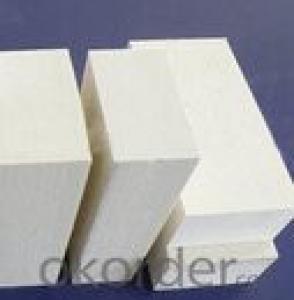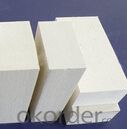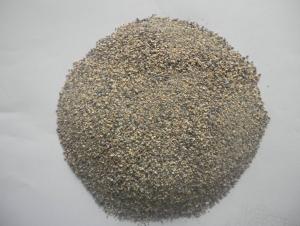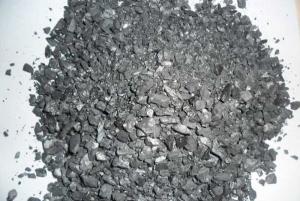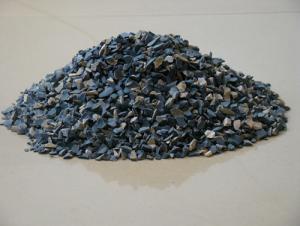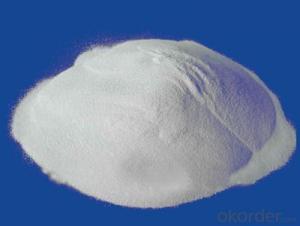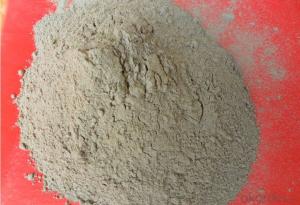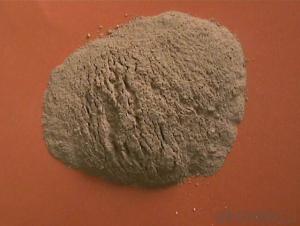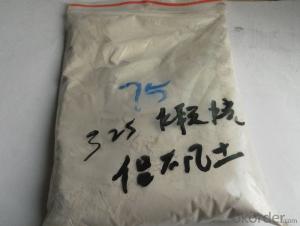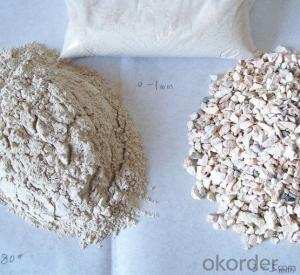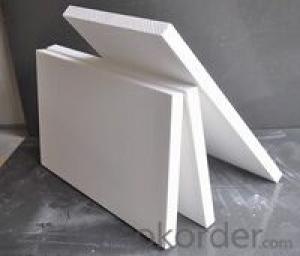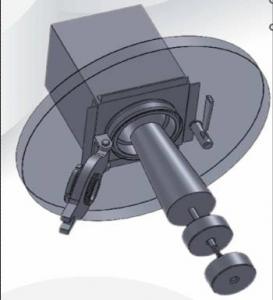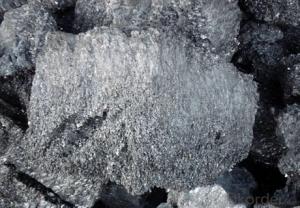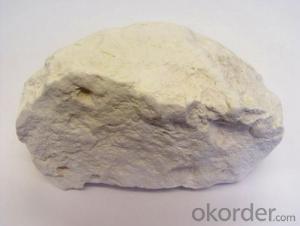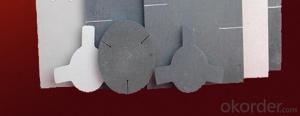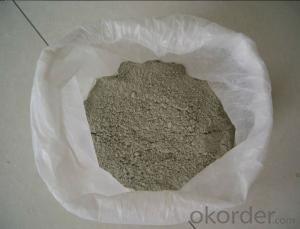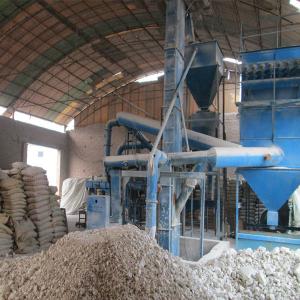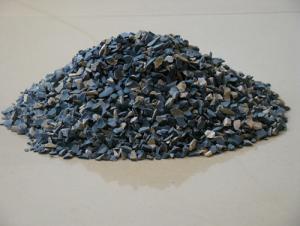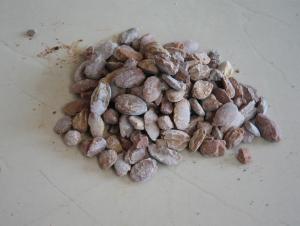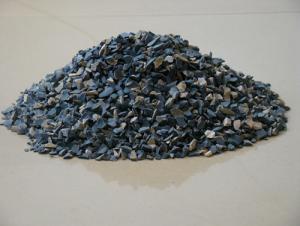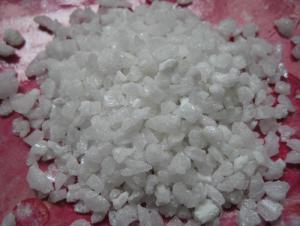High Quality Raw Materials for Refractory Firebrick
- Loading Port:
- China Main Port
- Payment Terms:
- TT OR LC
- Min Order Qty:
- -
- Supply Capability:
- -
OKorder Service Pledge
OKorder Financial Service
You Might Also Like
Specifications
refractory firebrick
1.Resisting high temperature
2.Great bulk density
3.Low iron content
4.SIO9001;2008
Refractory firebricks the main raw material for aluminum silicate fiber cotton, using vacuum
forming production process, operation and add silica sol, aluminum phosphate inorganic binder,
its role is to ensure that the products of the high temperature strength.
Item | High Quality Refractory Firebrick for Sale |
Type | Silica alumina refractory brick Alkaline series Carbon brick Containing zirconium refractory brick Heat insulation refractory brick |
Size and Specifications | NA RNA NK NKI |
Characteristics | Density huge , Strength high Refractoriness under load high Thermal shock resistance best Good eroding resistance Resisting high temperature |
Typical Application
| 1.Building material industry,kiln,heating equipment and the inwall of high—temperature pipe line 2.Chemical industrial high temperature of reaction equipment inwall 3.Power plant ,gas turbine engine and heat insulation of unclear power 4.The fire proof of high—rise building 5.Furnace door of kiln 6.High-temperature filter material |
Operating Temperature | 600°C, 950°C |
Service | the specifications of refractory brick could be customized |
MOQ | 1 ton |
Port | Qingdao Port |
Payment Terms | L/C, D/A, D/P, T/T, Western Union, MoneyGram, Cash |
Packing | wooden pallets with water-proof cover, and tightened with plastic/steel bandages |
Delivery | Within 15 Days |
Certificate | CE, ISO 9001 |
Items | Index | ||||||||
N-1 | N-2a | N-2b | N-3a | N-3b | N-4 | N-5 | N-6 | ||
Refractoriness, °C ≥ | 1750 | 1730 | 1730 | 1710 | 1710 | 1690 | 1670 | 1580 | |
Refractoriness Under Load,°C, [0.2MPa×0.6%] ≥ | 1400 | 1350 | -- | 1320 | -- | 1300 | -- | -- | |
Linear Change on Rehearting,% | 1400°C×2h | +0.1 -0.4 | +0.1 -0.5 | +0.2 -0.5 | -- | -- | -- | -- | -- |
1350°C×2h | -- | -- | -- | +0.2 -0.5 | +0.2 -0.5 | +0.2 -0.5 | +0.2 -0.5 | -- | |
Apparent Porosity, % ≤ | 22 | 26 | 24 | 24 | 26 | 24 | 26 | 28 | |
30.0 | 20.0 | 25.0 | 20.0 | 15.0 | 20.0 | 15.0 | 15 | ||
firebrick
Packing
wooden pallets with water-proof cover, and tightened with plastic/steel bandages
By your request also
Shipping
We will shipping and delivery goods timely ,quanlity and quantity guaranteed , and also in accordance
with the contract and customer's requirment completely !
FACTORY:
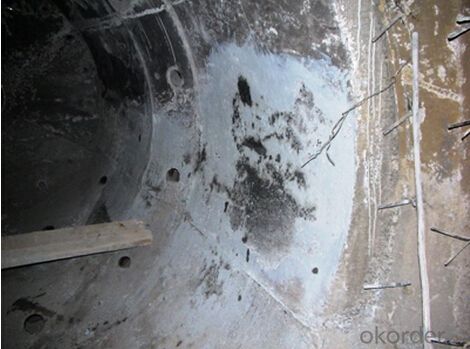
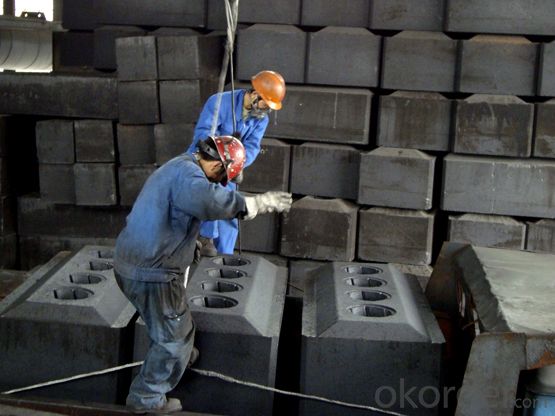
- Q: What requirements should refractory materials meet?
- The operating temperature of forging furnace is above 1000, which can ensure the normal operation of the furnace, prolong the life of the furnace and save energy. General requirements for refractories are as follows. 1 They should deform at a sufficient temperature without melting. 2, They should have necessary structural strength without softening and deforming. The volume should be stable at high temperature without expansion, contraction or cracking. 4, They can resist erosion of molten metal, slag, gas and other chemicals.
- Q: What are the specifications of fire resistant bag?
- Mesh number, namely hole number, refers to the hold number in each square inch. 5o mesh refers to 50 holes in each square inch and 500 mesh 500 holes. The larger the mesh number is, the more the holes are. The larger the mesh number is, the smaller the hole aperture is. Generally speaking, mesh number× aperture (microns) = 15000. For example, the aperture of a sieve of 400 mesh is about 38 microns; the aperture of a sieve of 500 mesh is about 30 microns.
- Q: How to determine the fire resistance rating of the aluminium-plastic?panel?
- Class A incombustible and thermal insulation material: inorganic active wall thermal insulation material, cement foam insulation board, glass bead thermal mortar, rock wool board, glass wool board, foam ceramics, etc. With many characteristics of low density, low thermal conductivity, high pressure bearing capacity, convenience of construction, economy and durability, A class incombustible material is widely used as thermal insulation material for heat pipelines, thermal equipment, other industrial pipe-line equipment and industrial buildings, and thermal insualtion and sound absorption material for the building envelop of industrial and civil buildings. Because of good thermal stability, it is more often used as fire-proof and protective coating material of the steel structure.
- Q: how to divided the external wall thermal insulation materials fire rating
- Level A: Incombustible building material: It is a kind of material that almost does not occur burning. Level B1: Nonflammable building material: Non-flame material has good flame resistance. It is difficult to fire under the condition of open fire in the air or high temperature, and it is not easy to quickly spread, and when the combustion?source is removed, the combustion will stop immediately. Level B2: Combustible?building?materials: Flame material has a good flame resistance. In case of fire in the air or at high temperature, it will immediately burst into flames, and easily lead to the spread of fire, such as wooden column, timber roof truss, timber beam and wooden stairs. Level B3: Combustible?building?materials: It has no any flame resisting effects, and is easy to burn, so the fire risk is high.
- Q: What is the appropiate thickness if fire resistant time for ultra thin steel structure coating is 2.5 hours?
- Hello steel structure can adopt surrounding concrete or brick, fireproof coating, fireproof board coating and composite structure for its fire resisitance. Fire resisitance board can be divided into thick fire protection plate and thin plate, the thickness of the plate thickness of the fire is between 20 ~ 50mm, mainly includes calcium silicate fireproof board and expansion boring stone fire board, the main varieties are KB board, CF; thin fireproof plate is between 6 ~ 15mm thick, the main varieties include enforced short fiber cement plate, ordinary enforced fiber silicate calcium board and glass cloth reinforced inorganic board.
- Q: What is refractory aggregate?
- It includes two categories: coarse aggregate and fine aggregate.
- Q: What are the materials of class A fire resistant window?
- The filling materials of steel, wood frame should be non-combustible materials. Fireproof glass can use qualified products that do not affect the fire window fire resistance performance, whose light transmittance should be no less than 75% that of the commom sheet glass with the same layers. Sealing materials between the frame and fireproof glass should be nonflammable materials. Hardware fittings should be fixed supporting products that pass the test.
- Q: What are the commonly used admixture for alumina-magnesia refractory? What are the impacts on its performance?
- 2, form Mg-SiO2 coagulation and combination, CA cement bond? Bricks can generally be made by combing with phenolic resin, castable use 1, combined with silicon powder; 3, can also combined with brine MgCl is binding agent
- Q: What's the A class fireproof and thermal inuslation matertial for external wall?
- It is a kind of green and environmental protection inorganic material, free of harmful substances like asbestos, benzene, formaldehyde, etc. Its fire resistance can be up to A1grade non-combustible material, which means it can endure the highest temperature of 1400 ℃. It is thermal insulating with low heat conductivity and high heat storage coefficient. It has good weather resistance, finished product stability, anti hollowing, crack resistance, wind pressure and shock resistance with the same service life as buildings of 70 years. It is water-fast and moistureproof, breathable but waterproof, and fungusproof without influence from steam. It is convenient in construction which omits many procedures of panels construction. Once the second plastering is finished, the construction is completed, which greatly shortens the construction period. It has good adhesive property with various base planes, and meanwhile its external exposed surface can choose coating, facing brick, aluminum sheet, marble, etc. It saves money. Excellent construction technology reduces the construction cost. It effectively prevents the panels from leakage at the external wall, window, eave, etc. which saves the subsequent maintenance fund. It provides timely delivery. With sufficient supplies of raw materials and convenient production, it is fast in delivery.
- Q: How to distinguish the fire resistant level of construction materials?
- There are 3 conditions for building components to reach fire endurance, namely: Loss of ability to support; loss of integrity; loss of fire insulation function. As long as one condition occurs, fire endurance is reached and the time before it is called fire endurance. 1), loss of ability to support: If the specimen bearing capacity and rigidity reduce, section area shrink, collapses or deformation exceeds specified numerical value because it cannot bear the load of original design under flame or high temperature, it loses the ability to support. 2), loss of integrity: It mainly refers to the thin wall separating component(such as stairs, windows,partitions, ceiling, etc.) burst or partially collapse under flame or high temperature, and penetrating?fracture or opening appears, and the reverse side even burn. For example, when the floor is under flame or at high temperature, the flame spread to the upper room, which indicates that the integrity has been damaged. 3), loss of fire insulation function: It mainly refers to that seperating components loses thermal insulation and excessive heat conduction. In experiment, if the average temperature of component unexposed surface exceeds 140 ℃, or if any spot at the unexposed surface exceed the initial temperature of 180 ℃, the component loses fire insulation function.
Send your message to us
High Quality Raw Materials for Refractory Firebrick
- Loading Port:
- China Main Port
- Payment Terms:
- TT OR LC
- Min Order Qty:
- -
- Supply Capability:
- -
OKorder Service Pledge
OKorder Financial Service
Similar products
Hot products
Hot Searches
Related keywords
